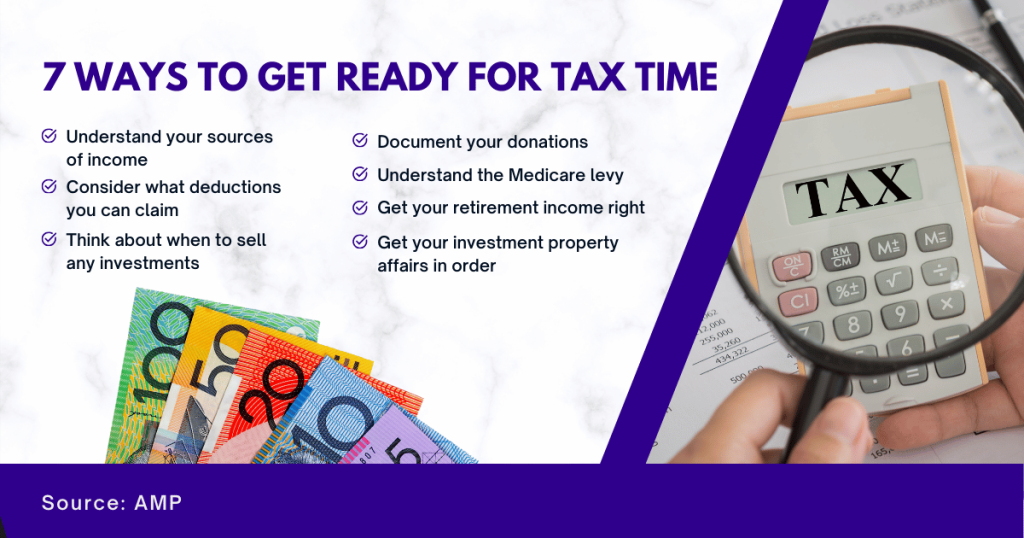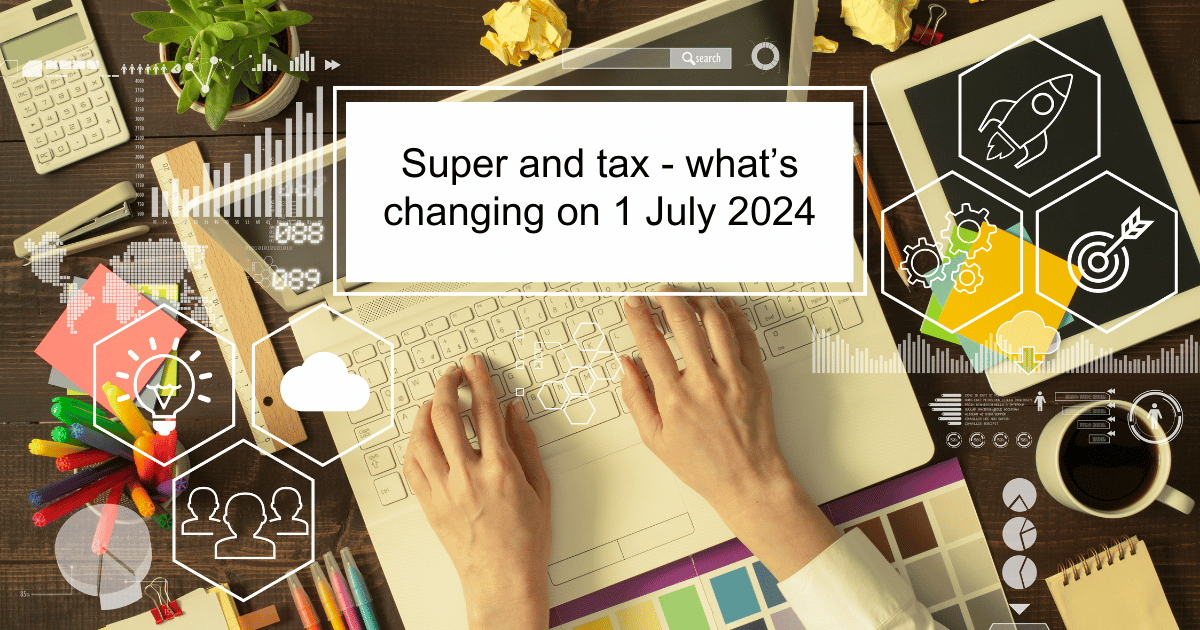A guide to active and passive investing Investment funds can be broadly split into two categories – active and passive. And while …

7 ways to get ready for tax time
Here’s a quick checklist to help you prepare for the end of financial year and maximise your tax time benefits.
1. Understand your sources of income
When it comes to tax, your wages are just the start. Income can come from all sorts of areas.
- Interest you’ve earned from bank accounts.
- Dividends you’ve received from shares.
- Employee share options you may be entitled to.
- Capital gains you’ve received from the sale of an asset.
- Rental income from an investment property.
- Redundancy payments when you’ve left a job.
- Any taxable Centrelink payments you may have received.
2. Consider what deductions you can claim
The rules around work related expenses do change from time to time so make sure you check what you can claim, particularly if you’ve been working from home more over the past couple of years. And did you realise you may be able to claim a tax deduction from super contributions? You may be eligible for a tax offset of $540 if you make a super contribution for your spouse and your spouse’s income is under the relevant threshold.
3. Think about when to sell any investments
Stick or twist? Sell or keep hold? When it comes to how capital gains from selling an asset are taxed, timing is everything – whether it’s a parcel of shares, an old car or even an investment property. Don’t forget the upcoming tax changes may mean that from 1 July you’re paying less tax, so that might affect when you decide to divest any investments and incur a capital gain – this year or next.
4. Document your donations
It’s great to give to your charity of choice but don’t forget your potential tax deductions. So hang on to your receipts and keep a record of your donations.
5. Understand the Medicare levy
If you earn over a certain amount you’ll need to pay the 2% Medicare levy to help fund the private health system. But there’s a potential rebate available if you take out private health insurance. So you might want to work out your best approach, particularly as you make progress at work and start to earn more money.
6. Get your retirement income right
If you’re retired, the good news is you can potentially earn a higher level of income before you start paying tax. But it can depend on your age and the type of income you receive.
7. Get your investment property affairs in order
If you’re renting a property out then you’ll probably be aware there are plenty of tax deductions you can claim for things like depreciation, cost of repair and maintenance, interest costs on your loan and fees that you pay for a real estate agent to manage your property.
Source: AMP
Latest news
Super and tax – what’s changing on 1 July 2024
They say nothing is certain in life except two things – death and taxes. Australians can probably add a third – the knowledge that come the end of financial year, the rules around superannuation and taxation will inevitably change.
How to reduce your mortgage interest rate and fees
With interest rates continuing to rise, reducing your mortgage interest rate can be a great way to save money so you’re not out of pocket and can keep or invest more of what you earn.
How debt can help you build long term wealth
Contrary to what some people may think, debt can help you build your wealth – especially if the debt is used responsibly with a clear plan and objective.




